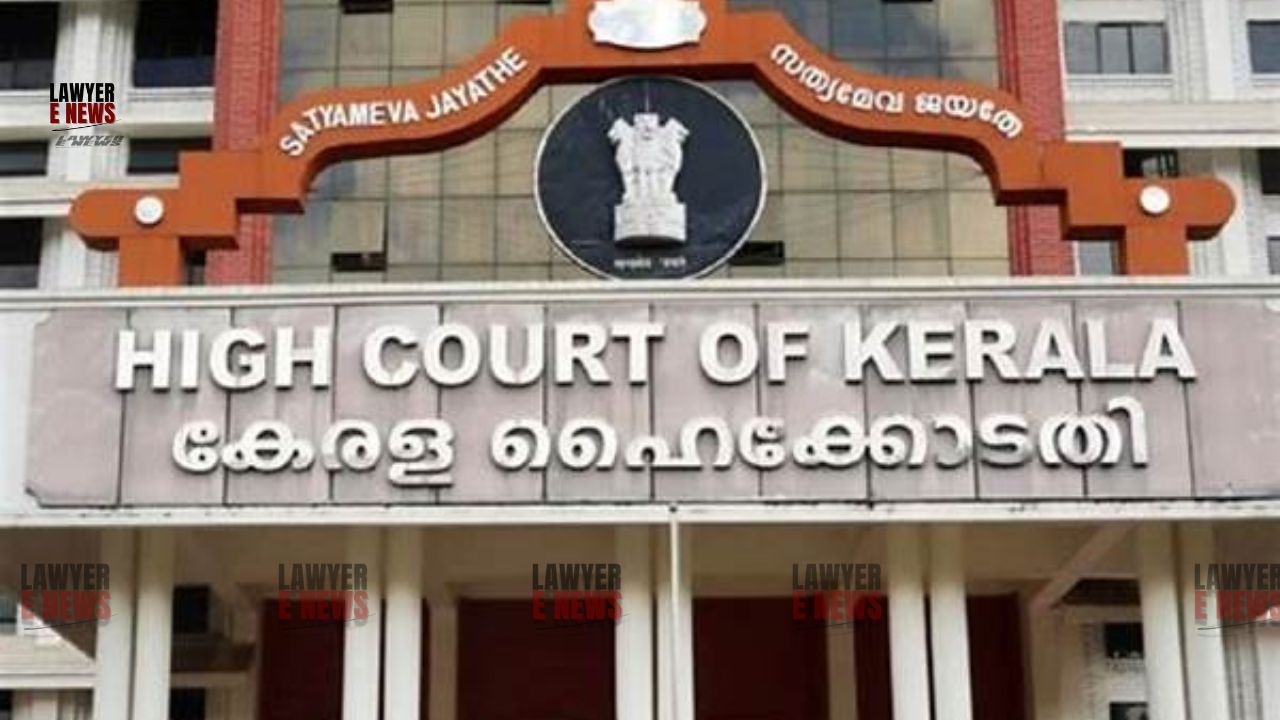-
by Admin
15 February 2026 2:16 AM



Kerala High Court, presided by Justice Bechu Kurian Thomas, delivered a significant judgment in Sunil Mathew v. Station House Officer, Museum Police Station, addressing the limits of freedom of the press in the context of bail conditions. The Court ruled in favor of the petitioner, a journalist and Managing Editor of the news channel i2i News, by striking down a gag order imposed as part of his bail conditions. This judgment is a crucial affirmation of journalistic freedom under Article 19(1)(a) of the Constitution, marking a decisive moment for media rights in India.
The case originated from the alleged suspicious death of the Supreme Head of the Believers Church, Sri K.P. Yohannan, during a visit to the United States. Sunil Mathew, the petitioner, aired news through his channel, suggesting that the Bishop's death was not accidental but a planned murder. Following these broadcasts, a complaint was lodged by another Bishop from the same church, accusing Mathew and his associates of airing false news and attempting to extort advertisements in exchange for halting such coverage.
As a result, a First Information Report (FIR) was registered under sections 153, 120B, and 506 of the Indian Penal Code (IPC), with the subsequent addition of Section 384 IPC (extortion), and Section 120(o) of the Kerala Police Act, 2011. Fearing arrest, Mathew sought anticipatory bail, which was granted by the Additional Sessions Court, Thiruvananthapuram, on June 15, 2024, albeit with a condition that he refrain from airing any news related to the Bishop’s death until his complaint before the State Police Chief was resolved. This condition was challenged before the High Court under Section 528 of the Bharatiya Nagarik Suraksha Sanhita, 2023.
The primary legal question was whether a bail condition restraining a journalist from reporting on an ongoing investigation violated the fundamental right to freedom of speech and expression under Article 19(1)(a). The Court had to balance the right to a free press with the need to ensure that the petitioner did not misuse his platform to commit similar offenses.
The Court emphasized the indispensable role of a free press in a democratic society, quoting Albert Camus, "A free press can of course be both good and bad, but most certainly without freedom, the press will never be anything but bad." Justice Bechu Kurian Thomas highlighted that while freedom of the press is subject to reasonable restrictions under Article 19(2), these restrictions must not be arbitrary or disproportionate.
The Court noted that the condition imposed by the Sessions Court, which effectively gagged the petitioner from reporting on the Bishop’s death, amounted to a violation of his fundamental rights. Justice Thomas observed, "Directions which are in the nature of blanket orders restricting the right of a person to express an opinion cannot be issued under the guise of imposing conditions while granting bail." The judgment further underscored that such restrictions could not be justified unless absolutely necessary.
Justice Thomas delved into several precedents, including the Supreme Court’s ruling in Arnab Ranjan Goswami v. Union of India, where it was held that journalistic freedom lies at the core of Article 19(1)(a) and that the right to speak freely should not be curtailed under the threat of reprisals. The judgment also cited Muhammed Zubair v. State of NCT of Delhi, in which the Court rejected blanket orders prohibiting social media activity by the accused.
The Court ruled that the condition imposed by the Sessions Court was disproportionate to its intended purpose. While acknowledging that the petitioner might have to face criminal action if his broadcasts violated the law, the Court held that such speculative possibilities could not justify restraining him from exercising his fundamental rights. "Restricting the publishing of any news relating to the death of a person is in effect prejudging the issue that such broadcasts of news would amount to an offense," Justice Thomas noted.
Consequently, the Kerala High Court struck down the restrictive bail condition, allowing the petitioner to resume his journalistic duties, including reporting on the ongoing investigation into the Bishop’s death.
The judgment in Sunil Mathew v. Station House Officer is a significant reaffirmation of the freedom of the press in India. It reiterates that while reasonable restrictions on speech and expression can be imposed, they must be proportionate and justifiable. This ruling ensures that journalists cannot be silenced through arbitrary bail conditions, safeguarding the essential role of the media in upholding democratic values.
Date of Decision: September 13, 2024
Sunil Mathew v. Station House Officer, Museum Police Station, Thiruvananthapuram.
